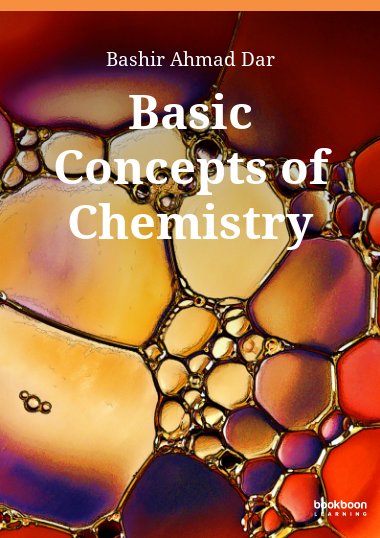This book is primarily written for the students who in the beginning of their university studies receive education in chemistry. Whether studying chemistry as part of a degree requirement or as part of a core curriculum, students will find Basic concepts of Chemistry to be an invaluable quick reference guide to this often challenging course. This book is also a perfect reference for parents who need to review critical chemistry concepts as they help high school students with homework assignments, as well as for adult learners headed back into the classroom who just need to a refresher of the core concepts.
We are proud to present our new series. Now students who are prepping for exams, preparing to study new material, or who just need a refresher can have a concise, easy-to-understand review guide that covers an entire course by concentrating solely on the most important concepts.
This book will off course be a ready to go material for the students in the fields of basic chemistry, engineering, food technology, pharmacy, environmental chemistry and applied chemistry etc.
The subject matter of this book has been presented in a simple, systematic, clear and comprehensive manner which is easy to understand.
To attempt to thank everyone who has helped us expand our knowledge of this subject would be an impossible task. I am highly thankful to Mr. Fairoz Ahmad Khan (Lecture chemistry at GDC Sopore) who has helped me directly or indirectly for the compilation of this manuscript. Thanks also to our friends and colleagues who inspired us to write this book. Special thanks are to my students who have given me valuable feedback on the course and book.
I am extremely thankful to Bookboon Publishers for taking great pains to make this venture a success.
Suggestions for the improvement of this book will be gratefully acknowledged.
Dr. Bashir Ahmad Dar
About the author
Dr Bashir is presently working as Assistant Professor at Govt. Degree College boys Sopore Kashmir. Previously he was lecturer at University of Kashmir, North campus Baramulla Kashmir. He has also worked as Assistant Professor at Maulana Azad College Aurangabad MaharastraIndia, Senior Project Fellow IIIM Jammu, Senior Research Fellow IIIM Jammu, Junior Research Fellow IIIM Jammu, Junior Research Fellow (IICT Hyderabad), Lecturer (Maulana Azad College, Aurangabad Maharastra India) and Visiting Lecturer (Post Graduate Department of Chemistry, Vasantroa Nayak College, of Science Aurangabad Maharastra India. He has 12 years of experience in teaching and research. Dr Bashir has published more than 50 research papers in highly reputed journal. He has also published some books on different topics of chemistry. He is editor and peer reviewer of many chemistry journals. He has participated in the scientific committee of several conferences and associations and has delivered many invited talks in India and abroad. His research interests involve Green Chemistry, Heterogeneous Catalysis, Organic Chemistry and Environmental Chemistry.

